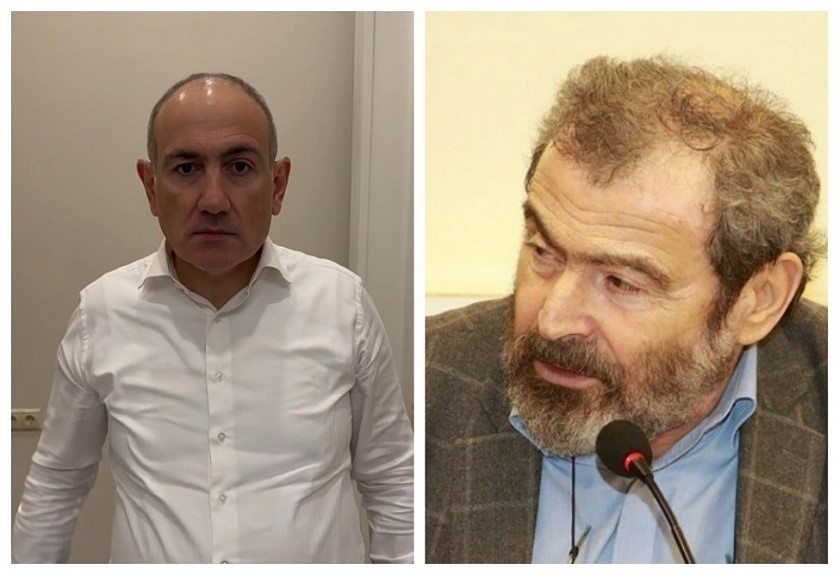Pasinyan and the new 'clean faced' Armenia
For the first time since the ‘velvet revolution’ of 2018, the Armenian premier showed his face shaved of his beard. A gesture to wink at the need to ‘bring the country back to zero’, an expression he increasingly used to call for ‘looking at the real Armenia and not the land of dreams’.
Yerevan (AsiaNews) - Armenia's Prime Minister Nikol Pašinyan made the symbolic gesture of shaving his beard, for the first time since the 2018 ‘velvet revolution’, also releasing a very knockout TikTok-style video, with the towel trick uncovering on his beard and then on his cleansed face, to indicate the ‘need to start from scratch in building Armenia's statehood’.
Everyone was rather taken aback, as the image of the ‘bearded Pašinyan’ was very much linked to the path he had travelled across the country, rallying his supporters to eventually achieve power with his Civil Accord movement, and then confirming it in subsequent electoral contests.
Some people think that Pašinyan also wanted to mark the difference with the current face of the opposition to him, Bishop Bagrat Galstanyan with his characteristic monastic beard, who from his peripheral diocese of Tavowš, on the border with hostile Azerbaijan, in turn made a popular pilgrimage to Yerevan, to rally the ‘patriots’ calling for the prime minister's resignation.
As some observers have commented, the beard trimming (with the final wink) in Armenian male custom is done after a heavy loss at cards, or for being outplayed in some other kind of competition.
Not adding any words of explanation to the video, Pašinyan winked at the need to ‘bring Armenia back to zero’, an expression he increasingly used to mean that ‘we need to look at the real Armenia, not the country of dreams that escapes its territories’.
The debate directly concerns relations with Azerbaijan and the occupation of Nagorno Karabakh, the latest trauma experienced as a result of a 30-year conflict, but Pašinyan's vision addresses the whole of Armenia's historical consciousness, which is still too tied to the ancient past of a people who filled the territories of Roman Asia, before the arrival of the Ottoman Turks.
The morning before shaving his face, the premier had called the 1990 declaration of independence ‘a great tragedy’, listing the territories that make up the territorial integrity of ex-Soviet Armenia, including the disputed parts with Azerbaijan, which today is the main obstacle to the conclusion of peace talks with Baku.
In Soviet times, the republic of Armenia was separated from the ‘Autonomous District of Nagorno Karabagh’, which was taken back by force in 1992.
To explain his position, Pašinyan added in his speech to the parliament in Yerevan that ‘our collective social mentality, our social psychology, today is in fact contrary to an authentic conception of statehood, unconsciously each of us stands against the state’.
The problem is that in the last 600 years, Armenia has only enjoyed independence for the last 35, and the ‘anti-state mentality’ was formed when there was no state and ‘we were only a colony’, whereas today the 49-year-old government leader proposes to ‘clean up’ not only the face, but the conscience itself.
Armenia, in his opinion, needs a new constitution, not only to remove expressions unwelcome to Azerbaijanis, but to make the country ‘really able to put itself forward and compete in the new geopolitical conditions’.
In addition to the final conclusion of negotiations with Azerbaijan, the Armenian government is in fact trying to forge relations with many countries in Asia (starting with India) and Europe, with a privileged relationship with France, and above all with Turkey, overcoming ancient hostilities and putting the historical diatribe over the Armenian genocide more than a century ago on the back burner.
23/10/2024 09:48







.png)










